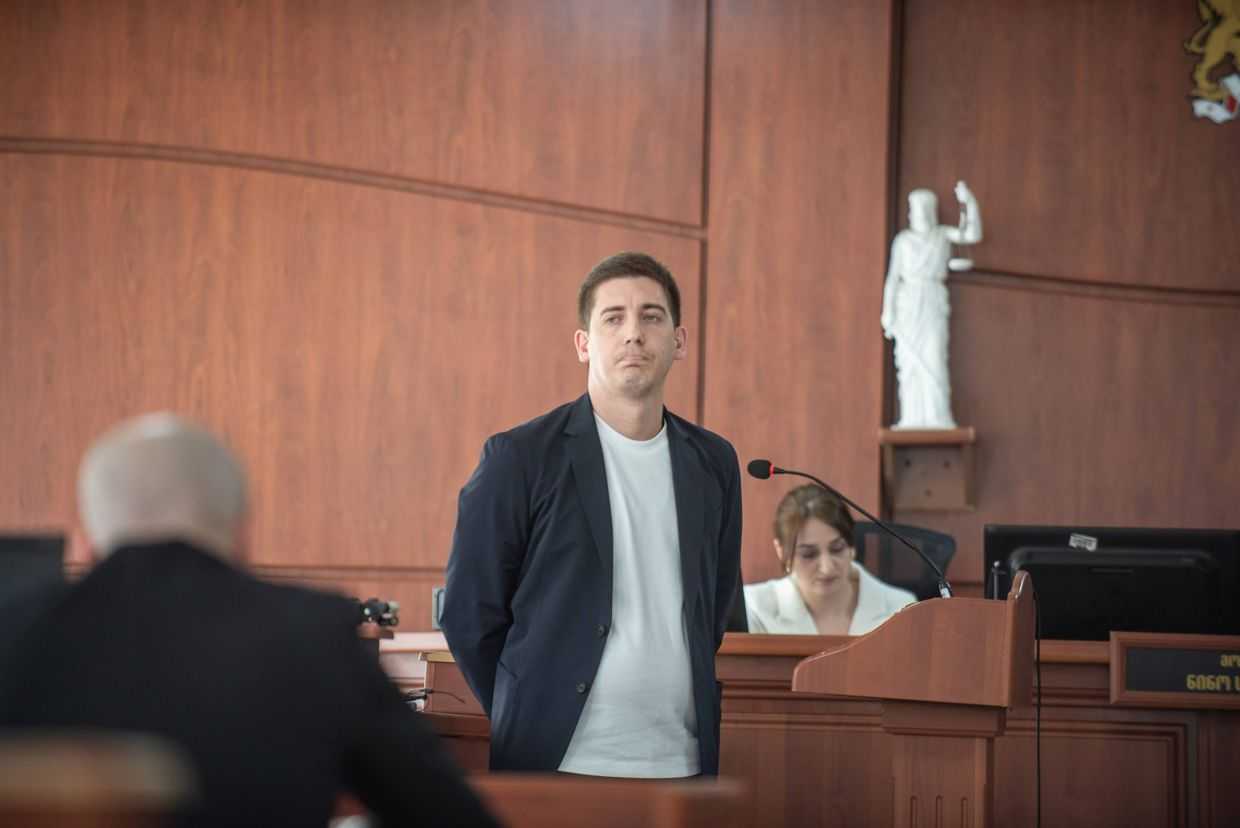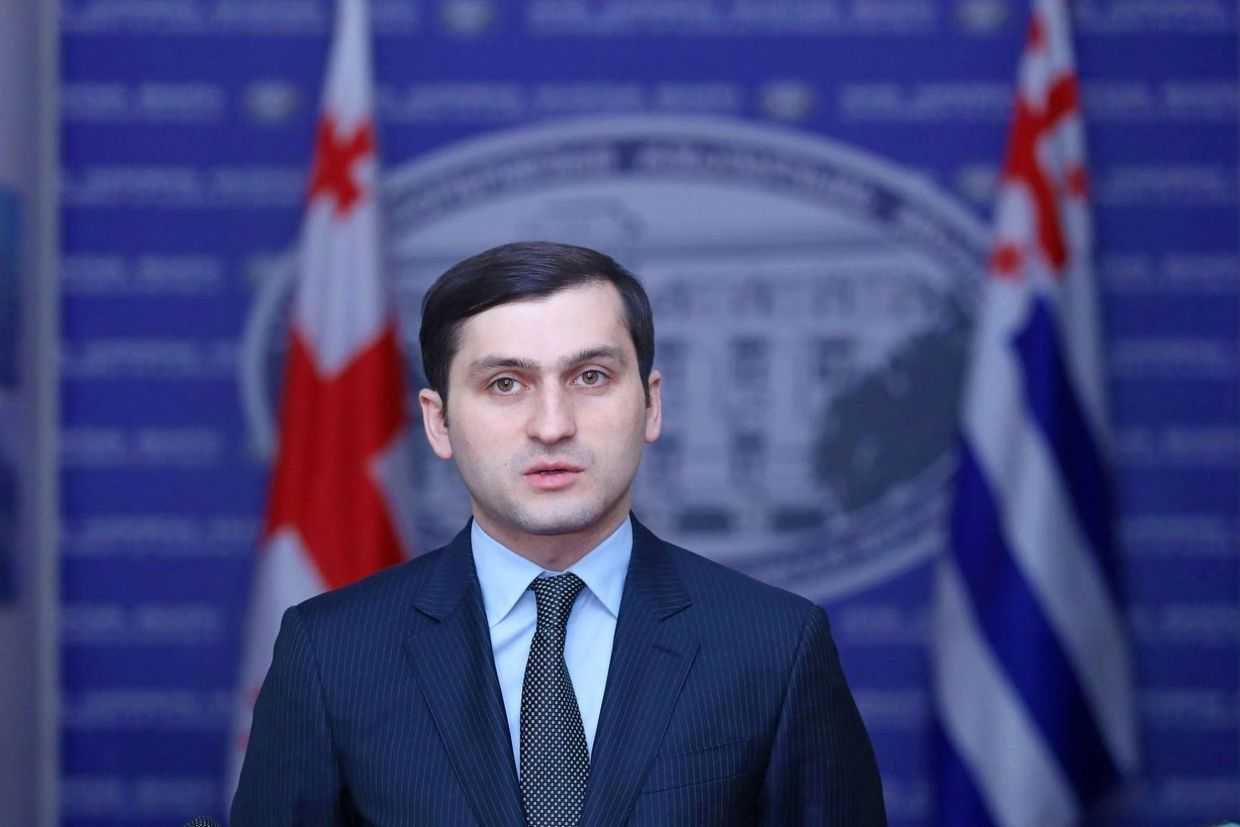
In October, a residential building collapsed in Batumi taking the lives of nine people including three children. While the authorities have moved to identify the individual culprits behind the collapse, the explanations for the disaster go far deeper.
As details emerged on 11 October from local residents, it became clear that construction work was ongoing on the ground floor of the building on Batumi’s 26 May Street prior to its collapse.
The Prosecutor’s Office quickly moved to charge three people with neglecting safety measures during renovation works and damaging the building’s load-bearing walls. It is now up to investigators and the courts to determine the details of this matter and to prosecute those responsible, who must be held accountable.
But this is just the tip of the iceberg of a problem that is much more complex and far-reaching.
We should give thorough thought to the reasons which led to such a tragedy, which will require analysing a chain of events spanning decades.
These reasons touch upon many spheres of our life — from civic responsibility to public governance, from socio-economic issues to political will, from professional skills to Georgia’s regulatory framework.
A Soviet-era legacy
With a legal act in 1989, the last Soviet government of Georgia allowed residents to add extensions to their residential buildings. As a result, Soviet-era multistory residential buildings across the country received makeshift alterations, such as additional floors and loggias.
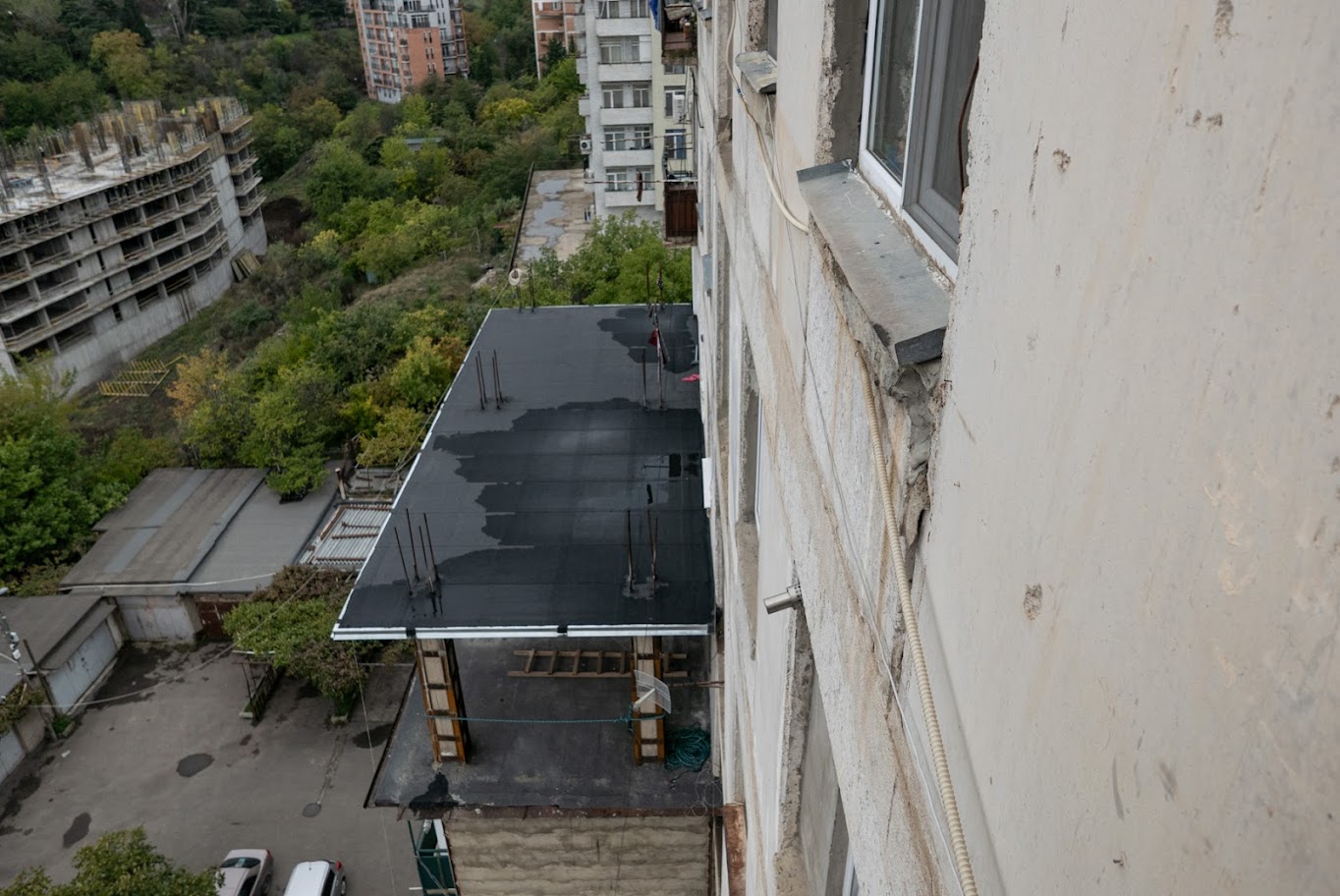
This was motivated by a lack of living space for families in Georgia; according to data from the Ministry of Economic Development of Georgia’s statistics department, before the collapse of the Soviet Union, the average housing space per capita in Georgia was just 22.5 m².
There is little reliable contemporary data on living space, however, 2002 estimates by Deloitte & Touche for the Department of Statistics put average housing space per capita in the capital at 12.2 m², suggesting that the issue persists. For comparison, the average floor area per person in the EU is 42.6 m². A 2007 UN report, meanwhile, states that as of 2001, more than half of Georgia’s population lives in urban areas, and 67% of households were located in flats. Approximately 450,000 families lived in multi-story housing.
Lack of comfortable residential space, economic hardships of the 1990s, the disappearance of public institutions, and the absence of the rule of law caused people to undertake improvised additions to their flats.
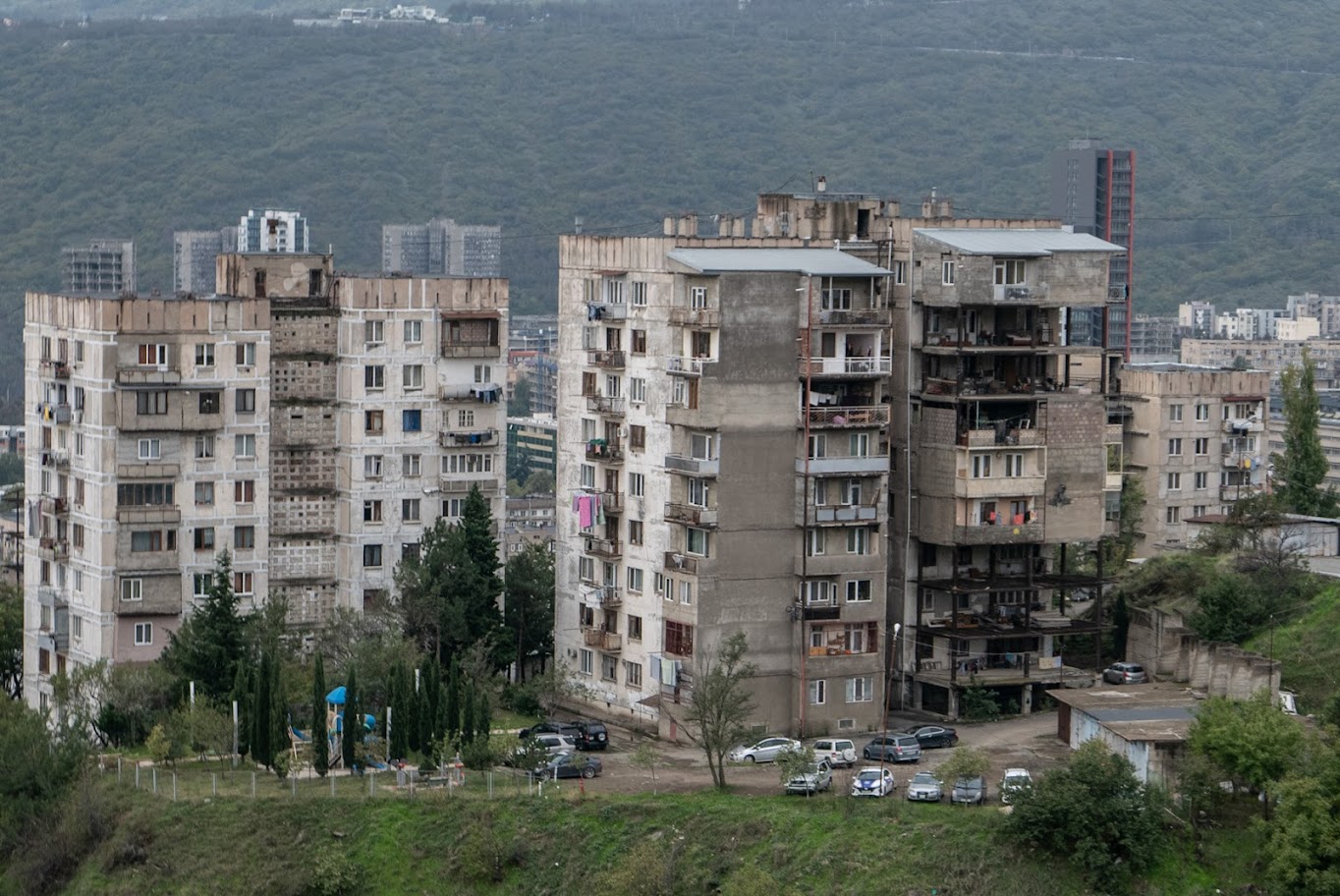
It is impossible to assess how many of these extensions were carried out without appropriate permissions and safety requirements. Some such ‘initiatives’ also remain unfinished, due to the socio-economic difficulties of that period.
Privatisation has not solved the problem
During the Soviet Union, housing was provided by the state. In 1992, after gaining independence, Georgia started to privatise housing and developed a market economy. The private sector fully took over the provision of residential space. From complete state ownership, the country switched to an almost complete private ownership of residential stock.
The gradual, but continued increase of house prices as well as high interest rates on bank loans have put adequate housing out of reach for a large part of the population.
The commercial market alone cannot solve housing issues, while the state has no housing policies and doesn’t think to develop social housing. As a result, in big cities, primarily in Tbilisi and Batumi, we see a huge number of high rise buildings with empty flats, which are investments and real estate speculations. This while many families are unable to afford to improve their housing conditions, or continue to live in dilapidated housing stock.
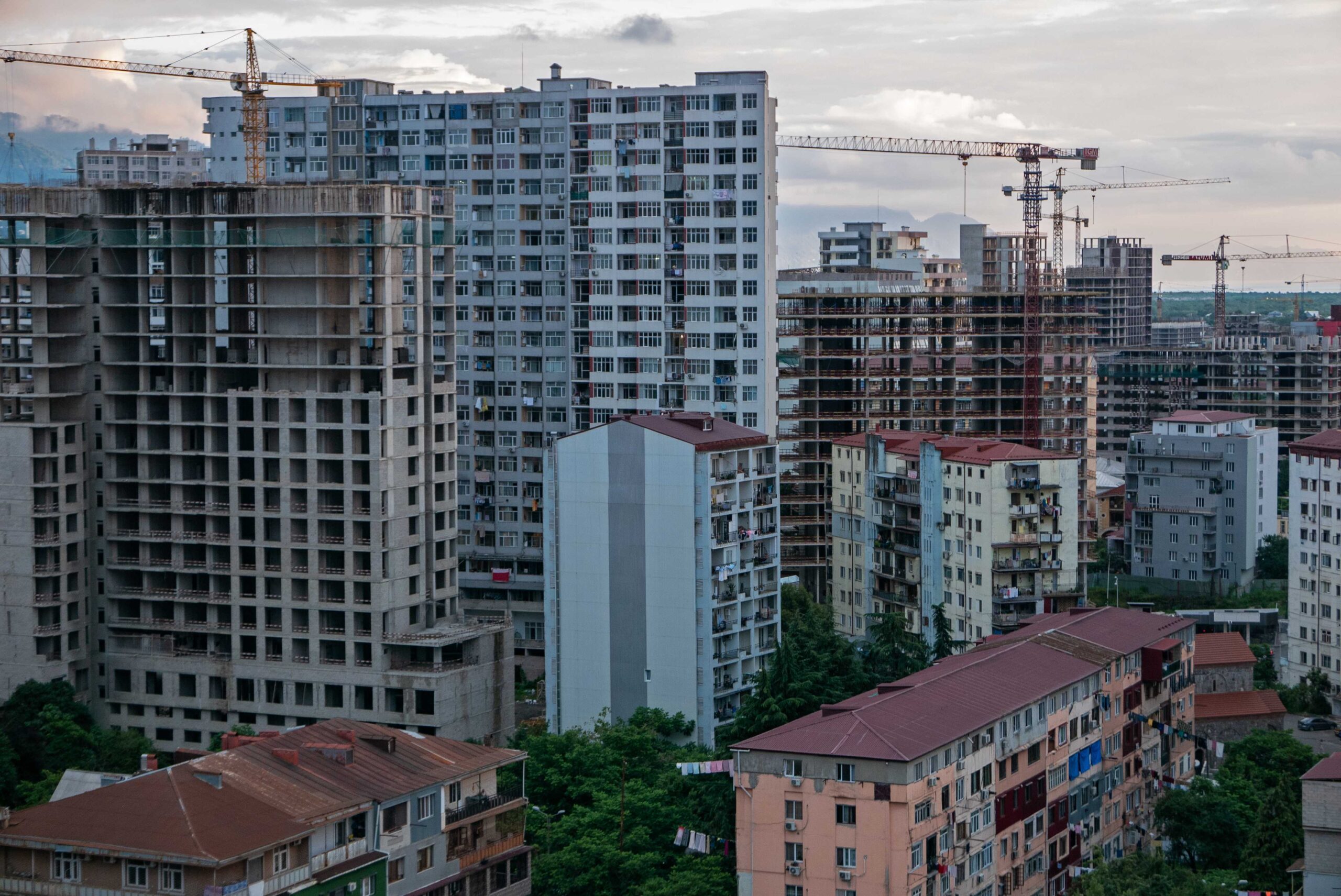
Many flats in Batumi’s new residential towers, for example, are mostly used only during the summer tourism season.
As a 2015 report by the World Bank states, ‘despite a boom in housing development and significant annual growth in the number of housing transactions in Georgia’s cities, many Georgians cannot afford adequate housing.’
‘Middle and low-income households are trapped between unaffordable new housing developments and the lack of government subsidy programmes targeted to those households unable to afford adequate living space (in terms of floor area and quality) and services. While middle-income households sometimes opt to construct apartment building extensions or trade-up within the older housing stock, the poorest households are left without any affordable option given the dearth of social housing in Georgia.’
An environment of impunity
Batumi has a significant problem of illegal construction. As several cases have shown, developers build additional floors beyond their permits. In most cases, the municipal authorities turn a blind eye towards such breaches of regulations.
A prime example of this was a case from 2018, when a permit was issued to construct a four-story spa building in the heart of Batumi Boulevard. When the developer — Ambassadori — began excavating the foundations, it was clearly meant for a much higher building. Soon, construction illegally went on with a fifth floor, for which a fine of ₾10,000 ($3,200) was issued.
In any case, the company later received a permit for 16 floors, and protests by the public, activists, professionals, and even politicians did nothing to stop the responsible governmental authorities or the developer. Quite the opposite — the owner went on with building 17 stories, 1 additional story without a permit. There was no reaction from the city hall.
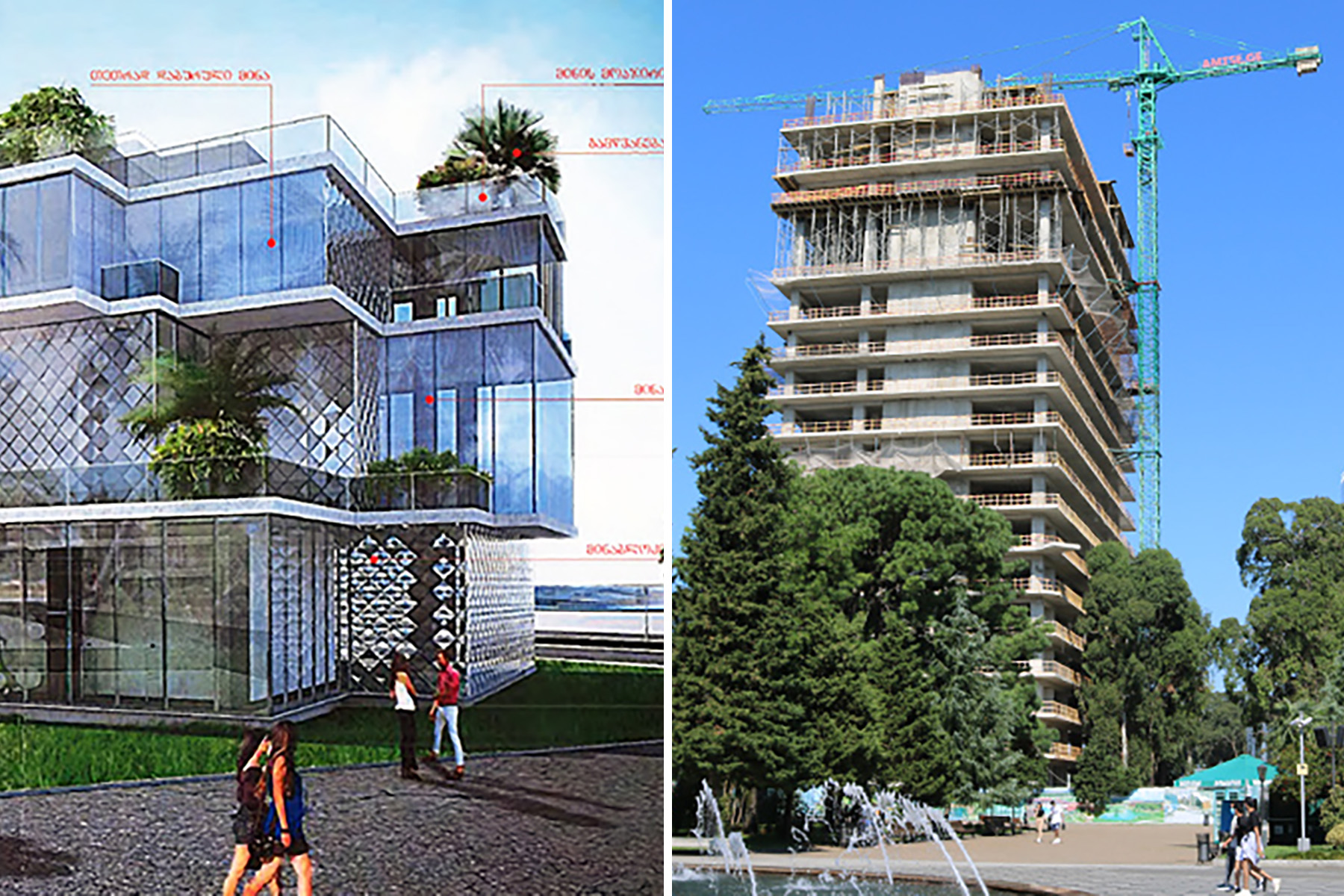
More than that, the Government of Adjara and the Ministry of Economy and Sustainable Development of Georgia later signed a memorandum with Ambassadori to construct an artificial island on the Black Sea shore of Batumi.
In another well-known case, the construction of seven large buildings began without a permit, later followed by another two buildings. Here, the city hall requested that construction be halted and again fined the developer several times. However, they failed to correctly identify the land plot number and actually issued fines to a different, unrelated company.
The company went to court and the city hall admitted their mistake, but until now it has taken no legal actions towards the other company — the real owner of the land and buildings.
Such failure to fulfil basic governance and legal competencies increases distrust in the municipal authorities. This strengthens the temptation for others to disrespect regulations for their own profit, and proceed without losing time and money to provide full legal documentation.
In such an environment where the public sees that large companies can get away with large-scale illegal construction, they do not bother to obtain permits for interior works for a flat, which is required by the law if these works touch upon load-bearing walls or the main structure of the building.
No regulations and no training
Another significant problem in Georgia is the lack of regulations of professional activities in architecture and construction.
In a situation where construction has been booming in the big cities for many years — representing up to 10% of Georgia’s GDP — there is no licensing, or at least legally binding requirement to hold a degree in architectural or planning disciplines, in order to draw up a project and submit it for a construction permit.
There is no licensing for construction companies either.
There is a complete absence of professional training and education for the labour force in the construction industry. This leads to poorly-qualified and self-taught workers in construction, where the level of skills can be crucial for the people’s safety.
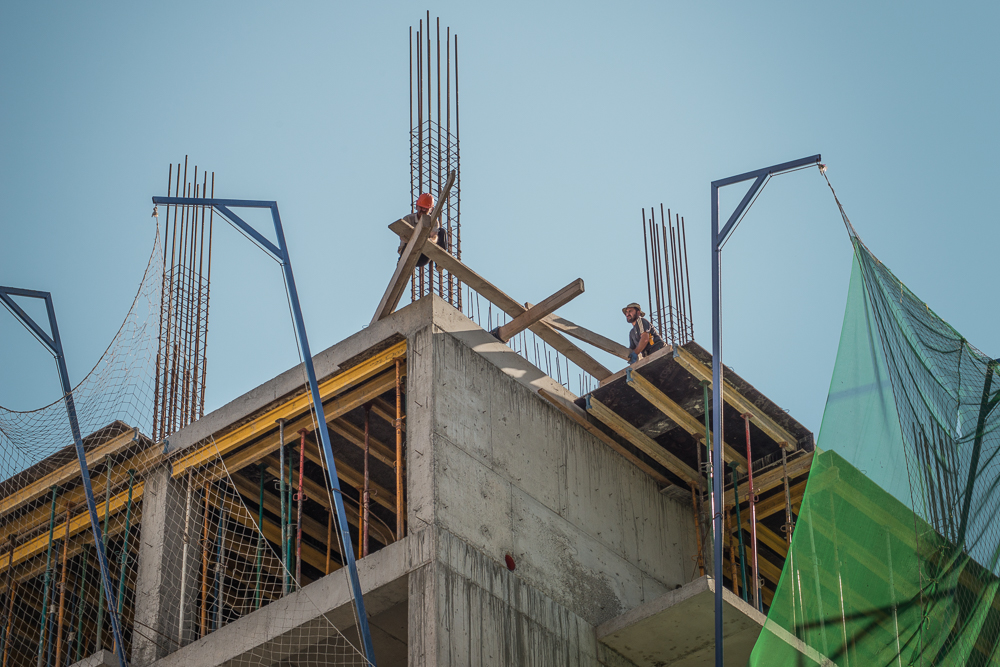
These problems all have their origins back in our Soviet past, and stretch over the period of three decades of independence since. When layered upon each other they create an environment where we cannot feel safe. We sometimes fail to identify the core of the problem, or are unable to treat it.
Still today, we have failed to come up with a systematic approach and raise awareness towards those social, economic, governance, and professional issues, which as the Batumi tragedy highlights — can have deadly consequences.
The opinions expressed in this article are the author’s alone, and do not necessarily reflect the views of OC Media’s editorial board.


